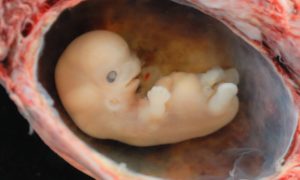It will be illegal to deny organ transplants to people because of intellectual disabilities if a newly reintroduced bill banning disability discrimination passes in Congress — and it appears to be making progress at last. The bill has cleared House committees and will move to the House floor for a full vote.
KEY TAKEAWAYS:
- People with intellectual disabilities are routinely denied life-saving organ transplants.
- Charlotte Woodward, a woman with Down syndrome, received a heart transplant and has been lobbying for federal protection ever since.
- The Charlotte Woodward Organ Transplant Discrimination Prevention Act is headed to the floor of the U.S. House for a vote.
THE DETAILS:
A previous effort to pass the Charlotte Woodward Organ Transplant Discrimination Prevention Act (S. 1782/H.R. 1520) passed in the House but stalled in the Senate. Republican Ashley Moody and Democrat Maggie Hassan re-introduced the bill in May in a bipartisan effort.
If instituted, it will be illegal to deny an organ transplant to a person on the basis of disability, and will mandate better post-transplant supports to be put in place for patients with disabilities. If a patient is denied transplant, they will have access to an expedited review through the Office of Civil Rights at the Department of Health and Human Services.
“Despite existing civil rights protections, individuals with disabilities continue to face both willful and unintended discrimination in organ transplantation that threatens their ability to access healthcare when they need it most,” Kandi Pickard, President and CEO of the National Down Syndrome Society (NDSS), said in a letter of support for the bill.
She explained:
To date, 40 states have passed state-level legislation prohibiting discrimination based solely on disability in the organ transplant system; however, this patchwork system of protections leaves those in states without legislation vulnerable to discrimination and denial of lifesaving care.
Federal action is needed to ensure that individuals with disabilities have access to an organ transplant system free from discrimination.
WHY IT MATTERS:
According to a 2008 study from the Autism Self-Advocacy Network, 85% of pediatric transplant centers take neurodevelopmental status into consideration when approving or denying transplants.
A 2016 letter sent to the U.S. Department of Health and Human Services’ Office for Civil Rights also included a statement from Dr. Arthur Caplan, director of medical ethics for New York University’s Langone Medical Center, who shockingly said, “If the potential recipient is severely intellectually impaired… I do not think it makes sense to consider that child for a transplant.”
35-year-old Woodward, however, was able to receive a heart transplant 13 years ago. She has done so well post-transplant that her doctors say she has become a “boring” patient, because, as she says, “I take very good care of my heart.”
She has been a vocal advocate for ending the discrimination in organ transplantation for years, fighting to ensure other people in the disability community are not denied the opportunity she was given.
“People with Down syndrome and other disabilities should not be denied a lifesaving opportunity,” she said in a viral 2020 video. “We need a legal solution to make it clear that blatant discrimination is wrong and is not permissible. I don’t think people are doing it maliciously. They’re just uneducated. It’s rooted in fear and ignorance.”
Woodward, who now works at NDSS, began her advocacy career when she realized her transplant experience was not the norm. “There have been many stories about denials of organs and transplants. We will never know how many,” she said through tears. “I think, ‘How could you?’”
One particularly heartbreaking example is that of Zion Sarmiento, a baby born with Down syndrome, who died at just 16 weeks old after four hospitals refused to give him a heart transplant. The family was reportedly told it would be “a waste of a heart.”
THE BOTTOM LINE:
People with disabilities are just as valuable and deserving of life-saving health care as their able-bodied peers, and should not be left to die due to prejudice.








